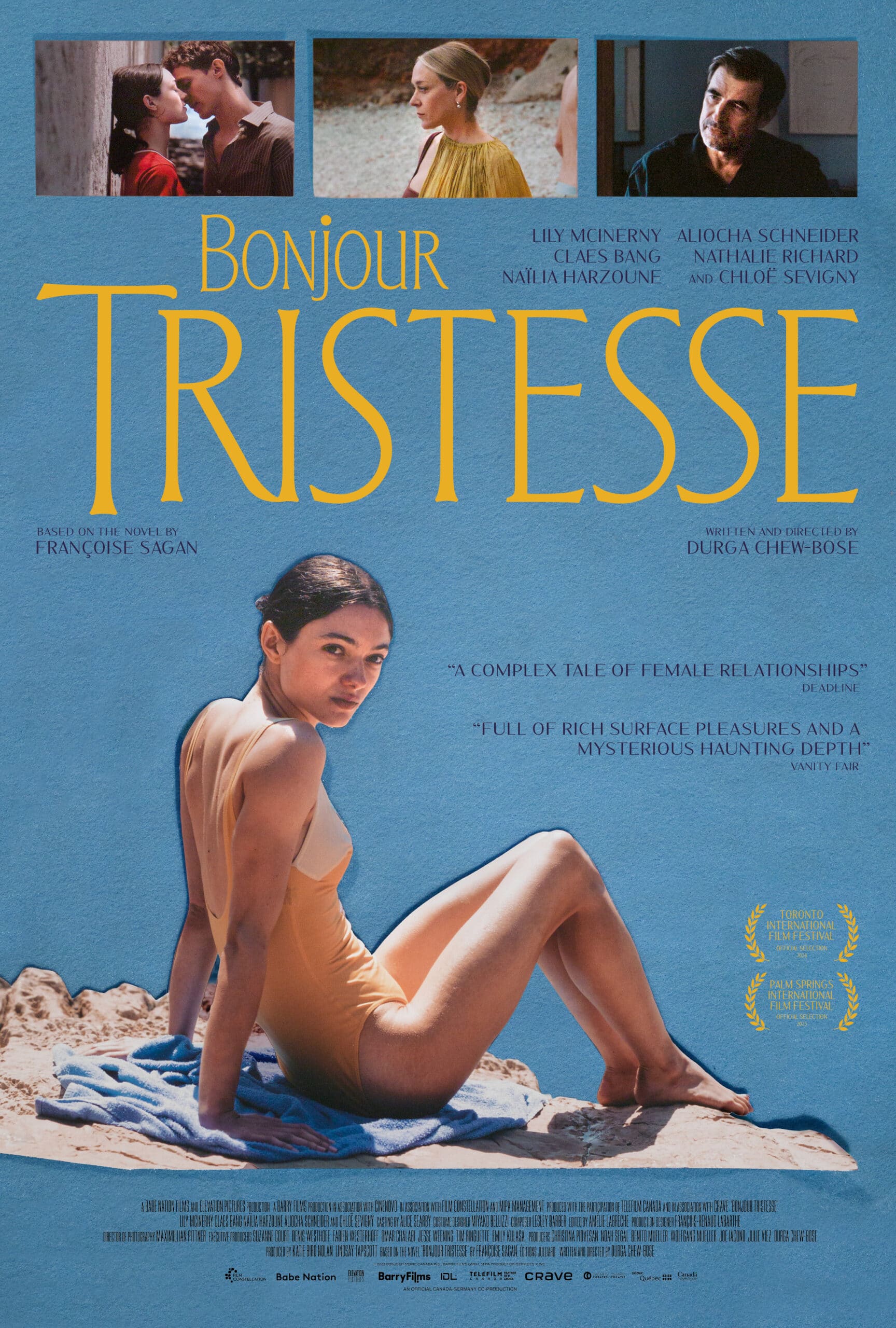
- Starring
- Chloë Sevigny, Lily McInerny, Claes Bang
- Writer
- Durga Chew-Bose
- Director
- Durga Chew-Bose
- Rating
- R (United States)
- Running Time
- 110 minutes
- Release Date
- May 2nd, 2025
Overall Score
Rating Summary
As far as niche sub-genres are concerned, the “Summer When Everything Changed” film has certainly proved itself a reliable little lane for up-and-coming filmmakers to traverse, affording them the space to discover their own styles just as their subjects begin to discover themselves. Sometimes, the significant change depicted comes from a moment of subtly depicted life-altering trauma; sometimes it’s a moment of sexual awakening; oftentimes it’s both, but the power always comes from that synergy between art and artist—that feeling that the film exists as an inescapable piece of the filmmaker’s own past brought to the screen.
Perhaps this is where a film like Bonjour Tristesse deviates somewhat from expectations, for while the bones of this story could very well have spoken personally to debuting director (and writer) Durga Chew-Bose enough to send her towards this material in the first place, the material itself has been around since long before her own adolescent crossroads. An adaptation of a 1954 novel by Françoise Sagan—itself already adapted four years thereafter by none other than Otto Preminger—Chew-Bose’s film already has a steep hill to climb beyond the scope of her own memories (as is so often, though not always, the case with these films), and so the challenge becomes less one of recapturing subjectivity and more a challenge of creating it from scratch.
The subject of this well-worn tale of ennui is Cécile (McInerny), a teenage girl spending her summer in the south of France with her widowed father Raymond (Bang) and his French girlfriend Elsa (Nailila Harzoune). Cécile’s days are filled—as is the case with most films of this ilk—with meandering trips to the beach and cozy games of solitaire on the couch with a glass of wine, all in between courting her first love affair with a local boy, Cyril (Aliocha Schneider). It’s not until an old friend of the family, Anne (Sevigny), arrives to share in this vacation that the malaise of summertime gives way to more concentrated bouts of interpersonal horn-locking.
The first thing one may notice about Bonjour Tristesse, as is typically the case with films of this quietly crushing sabbatical nature—think Call Me By Your Name, Aftersun, Falcon Lake—is a concentrated emphasis on atmosphere. These films understand that to communicate what is so inarticulable to the child’s mind means communicating it, oftentimes, without words at all, instead letting the blistering heat of the sun or the invasive hum of cicadas fill the dead air that so often accompanies stolen glances. Chew-Bose is definitely privy to this notion, as her film makes a concerted effort to shoot the seaside of the day and the lofty trees of the night with equal emphasis to the words shared in their space.
It’s a concept that Drew-Bose understands, but not one that she executes all that effectively. This is mainly because Bonjour Tristesse, for all its emphasis on what can be communicated without words, seems entirely determined to undermine that notion at every turn with an endless stream of stilted, overworked dialogue exchanges. Nearly every line in the film feels written as though it was thought-up with the expressed intention of becoming an out-of-context pull-quote for teenagers unwilling to sit through a film this sparse to begin with—“Be wrong sometimes… it’s less lonely,” or “I love this time of day; there is so much possibility before lunch”—which may be an effective tool to make some characters appear more vapid or constructed than others, but doesn’t really serve a film of this tone when everybody speaks that way.
This may very well be a byproduct of the film’s literary origins—not only is Bonjour Tristesse based on a book, but Chew-Bose’s own prior artistic experience comes from writing a book compiled of essays—in which sensory experiences and complicated, contradictory thoughts must, by necessity, be expressed in words. If anything, though, this further emphasizes the challenge that comes with adaptation, and the laudable efforts of those who manage to adapt to the work to the silver screen and make that sensory experience more… well, sensory. Even the presence of Sevigny (in an ironic twist, an actress who made her bones on independent films becomes the most recognizable name in this one) does little to elevate the film, controlled as she may be in her grasp of the film’s stilted aura. Chew-Bose may very well have found something viscerally relatable in Sagan’s source material to warrant yet another adaptation, but rarely has the feeling of a warm summer day felt so foreign and frigid.
In the end, Bonjour Tristesse never quite lives up to its interest in harnessing the malaise of a quiet and confused summer, mostly due to its over-reliance on fatigued dialogue and thin characterization.
*still courtesy of Elevation Pictures*
If you liked this, please read our other reviews here and don’t forget to follow us on Twitter or Instagram or like us on Facebook.
Discover more from
Subscribe to get the latest posts sent to your email.
